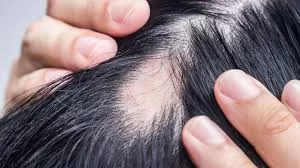A recent study published in JAMA Dermatology reveals that individuals diagnosed with alopecia areata—a condition characterized by hair loss—are at a significantly higher risk for both autoimmune and psychiatric disorders, both at the time of diagnosis and afterward.
The study, which analyzed data from the Merative MarketScan Research Database, compared 63,384 patients with alopecia areata to 3,309,107 individuals without the condition. The findings indicate a notable prevalence of comorbid conditions in those with alopecia areata, suggesting a greater vulnerability to a range of autoimmune and mental health disorders.
Increased Prevalence of Psychiatric and Autoimmune Conditions
At the time of diagnosis, 30.9% of alopecia areata patients had psychiatric comorbidities, compared to 26.8% of individuals without the condition. In addition, 16.1% of alopecia areata patients were found to have autoimmune comorbidities, in contrast to 8.9% of the control group.
Following the diagnosis, the incidence of psychiatric disorders within the first year was 10.2% for patients with alopecia areata, higher than the 6.8% observed in the control group. Similarly, the incidence of autoimmune or immune-mediated diseases in the same timeframe was 6.2% among alopecia areata patients, compared to just 1.5% in those without the condition.
Psychiatric and Autoimmune Risks Highlighted
The study’s results underscore a significantly elevated risk of both psychiatric and autoimmune comorbidities in alopecia areata patients. Patients with alopecia areata were found to have an adjusted hazard ratio (aHR) of 1.3 for developing psychiatric disorders, and 2.7 for autoimmune conditions. This means that individuals with alopecia areata are at more than twice the risk of developing autoimmune diseases compared to those without the condition.
The research identified specific disorders with particularly high risks. Among psychiatric disorders, adjustment disorder had the highest relative risk (aHR 1.5), followed by panic disorder and sexual dysfunction (both with an aHR of 1.4). When it comes to autoimmune conditions, systemic lupus erythematosus exhibited the highest risk (aHR 5.7), followed by atopic dermatitis (aHR 4.3) and vitiligo (aHR 3.8).
Implications for Patient Care
These findings highlight the need for healthcare providers to closely monitor alopecia areata patients not only for their hair loss symptoms but also for the early signs of psychiatric and autoimmune disorders. The study suggests that early intervention and tailored care strategies could help mitigate the development or worsening of these comorbid conditions.
As alopecia areata is already known for its impact on self-esteem and emotional well-being, the discovery of increased psychiatric risks emphasizes the importance of comprehensive care. Addressing both the physical and mental health aspects of the condition may improve overall patient outcomes.
This study offers new insights into the broader health risks faced by those living with alopecia areata, urging further research into the links between hair loss and systemic health issues.












